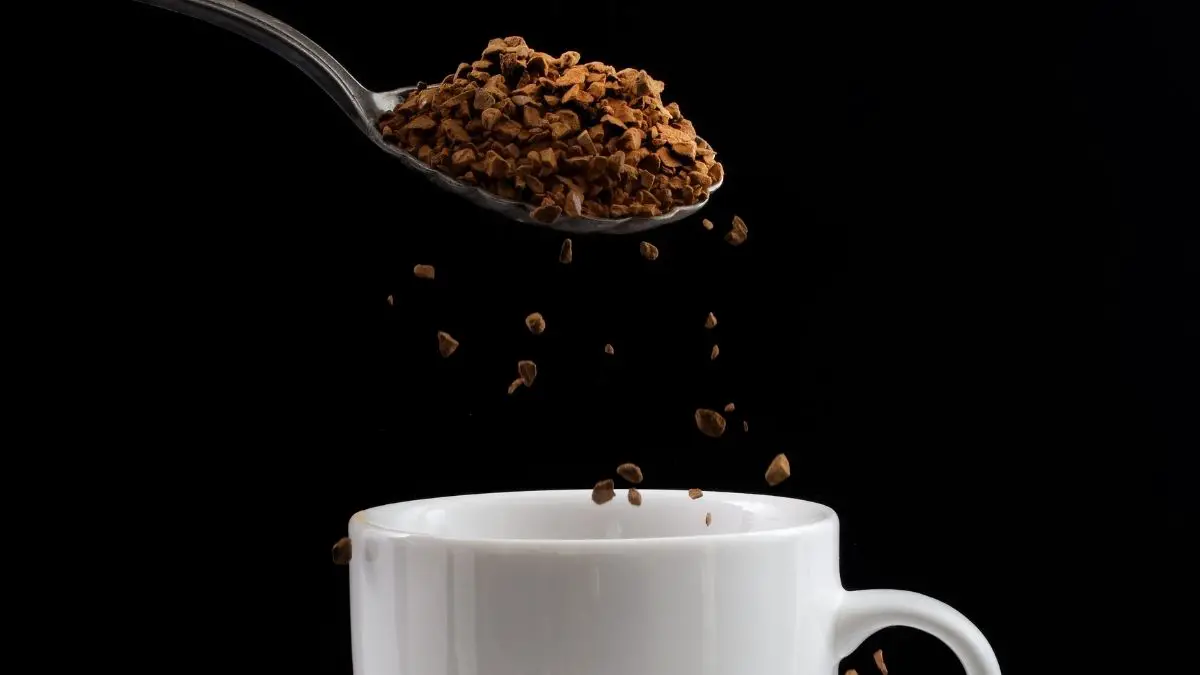It depends on your expectation. Filtered coffee is different from instant coffee. You may try to prepare filtered coffee like how you do instant coffee, but you will easily notice the change in taste and texture.
For hardcore coffee enthusiasts, drinking their coffee without the complete raw taste of roasted coffee beans is a serious offense. On the other hand, some coffee lovers would not mind whether their coffee drink tastes authentic or not, as long as they get their daily dose of caffeine on time.
People’s difference in preferences is what creates the divide between the fans of filtered coffee and instant coffee. Those people in favor of filtered coffee are after the quality in taste and aroma, while those who prefer instant coffee go for convenience.
However, there will come a time when convenience should also matter for filtered coffee fans. If they find themselves late for work in the morning, and they still have to set up their filter coffee machines, they will realize how important it is to have coffee that is easier and quicker to prepare.
If you are the person in that scenario and you only have filtered coffee in your hands, you might think about putting the filtered coffee directly in a cup of hot water then stirring it, just like how you prepare instant coffee. The question is, will the resulting beverage be any good?
How Can You Use Filtered Coffee As Instant Coffee? Will It Be Safe?
You can use filtered coffee as instant coffee, but do not expect the result to have the same taste and texture as an instant coffee drink. First of all, instant coffee is made differently.
Instant coffee is processed in a way that the instant coffee powder or granules can easily dissolve in water with very minimal residue from coffee bean grinds. More about the process of making instant coffee will be explained later on in this article.
When it comes to filtered coffee powder, it is not ideal to put it directly in water and stir it thoroughly in hopes that the powder will dissolve as easily as instant coffee. Filtered coffee is basically ground coffee beans, but it lacks the process of making the grinds soluble in water. There will most likely be undissolved coffee grinds settling at the bottom of the cup, thus making the drink’s texture grainy or even chewy.
Health And Safety Concerns
For someone who is running late for work and gives the instant coffee treatment to filtered coffee, they wouldn’t mind the insoluble coffee particles floating in their drink. However, there are safety concerns about ingesting these particles. For one, undissolved coffee grinds are hard to digest in the stomach.
Another valid safety issue about undissolved coffee granules is the presence of the components known as cafestol and kahweol. They are collectively called diterpenes in the medical field, and they have the reputation of elevating LDL or bad cholesterol levels in the human body. This is supported by a study conducted in 2011 in India and Singapore.
Therefore, if you are already dealing with cholesterol problems, it may not be the best decision to force the filtered coffee to mix with water. Time and convenience might be important for you, but using a filtered coffee maker or filter paper is still the best way to prepare your filtered coffee.
Ways To Prepare Your Filtered Coffee
An automatic coffee maker speeds up the drip and brew method of preparing filtered coffee. You just have to put the filtered coffee powder inside the coffee maker’s filter then pour water on it. In a few minutes, the brewed coffee drink will drip out of the machine, which is to be collected in your mug.
You can also use filter paper in preparing your filtered coffee. Just place the filter paper on top of your coffee mug then place a scoop of filtered coffee power in the paper. Pour hot water on the coffee powder afterward, and let the water drip from the filter paper down to your mug. Let gravity do the work for you in extracting the coffee taste from the powder.
The use of filter paper is the least expensive way to prepare your filtered coffee. However, for the obvious reason that is time-consuming, people would still want to put filtered coffee in a cup of water and stir a la instant coffee.
You will need a bit of time in order to prepare filtered coffee properly, unlike instant coffee. However, if you really want to speed up the process while not compromising the quality of your drink, using filtered coffee with a French press is highly recommended.
A French press is not as expensive as a coffee maker, nor as tedious to use as a filter paper. A French press is a pot with a plunger included inside. You just have to put the filtered coffee powder and hot water together inside the French press, wait a few minutes, then press the plunger.
Pressing the French press’s plunger would separate the insoluble coffee grinds from the rest of your drink. The quality of the drink will depend on how long you press on the plunger. The longer you press, the stronger the coffee taste that you will get from the drink.
What Is The Difference Between Filtered Coffee And Instant Cofee?
Instant coffee is prepared by mixing the coffee powder with water. It is basically pre-ground coffee beans transformed into ready-to-mix coffee powder. The process of making instant coffee powder soluble in water is very specific.
How Is Instant Coffee Made?
A combination of physical and chemical processes is required to make instant coffee. The most important thing here is to remove the water and make the coffee beans as dry as possible to be converted into granules. Instant coffee also goes by the name coffee granules, coffee crystals, soluble coffee, coffee mix, freeze-dried coffee, and spray-dried coffee.
Manufacturers have the coffee beans roasted before grinding them and turning them into instant coffee granules. Huge amounts of coffee beans are heated and brewed inside a container. The container is where the coffee beans are condensed into thick liquid coffee concentrates.
After the coffee beans become liquid in appearance, they undergo the process of drying. There are two ways that instant coffee manufacturers dry their coffee granules. The first way is called spray drying, wherein a fine mist of brewed liquid coffee is sprayed inside a tall chamber. The air inside the chamber is very hot and dry, so when the sprayed coffee droplets land at the bottom, they are already in the form of dried powder.
The other method of drying instant coffee granules is known as freeze-drying. It is where the liquified coffee beans are frozen then ground further into finer granules. They are then placed inside a vacuum container wherein they are exposed to high temperatures, therefore evaporating all the water content from the granules, making them solid and dry.
How Is Filtered Coffee Made?
On the other hand, the process of making filtered coffee powder is not very much concerned about drying up the coffee grinds. The main procedure here is grinding up the roasted coffee beans into a specific coarseness. A finely-ground filtered coffee is expected to have a stronger and richer taste.
After buying filtered coffee from the store, the next procedure in preparing the coffee is now up to you. As mentioned previously in this article, you can use an automated coffee maker to extract the coffee drink through drip-filtering, or a filter paper that will take a couple of minutes to filter out your drink. French press is also recommended to manually get the coffee extract from filtered coffee powder by pressing on the plunger.
What Will Happen If I Use Filtered Coffee The Same Way As Instant Coffee?
You can pretend like there is no difference when you mix filtered coffee directly with water, but it will not taste the same as instant coffee. A well-prepared filtered coffee should capture the authentic taste and aroma of freshly-brewed coffee beans, unlike instant coffee. However, if you treat filtered coffee the same way as instant coffee, you are compromising the quality of its taste.
Difference In Aroma And Taste
Filtered coffee requires a drip filter to extract the rich taste of the coffee grinds. Mixing it with water will only bring out some of the smell and flavor of coffee beans. The natural oils that filtered coffee contains will also be put to waste if you skip the drip filter phase and go straight to mixing with water.
The result will be a coffee drink with a very weak taste. This can also depend on how long you have stirred the coffee powder and water together, or if the water is hot enough. Regardless, do not expect a great quality of coffee taste and aroma if pick this kind of preparation with filtered coffee.
Difference In Texture
Instant coffee powder is readily soluble in water, while filtered coffee is not. No matter how hard you stir or shake filtered coffee powder with water, there will always be coffee residues settling at the bottom of your mug.
Serving filtered coffee like instant coffee should have a very different texture because. It will feel grainy after taking a sip, or worse, these particulates could make your throat feel scratchy. Although, some coffee drinkers may not be concerned with this. Some are even used to chewing coffee granules!
Wrapping Up
You can definitely use filtered coffee as instant coffee, but there will be consequences in the quality of the drink. Instant coffee wins over filtered coffee in terms of convenience, but the latter has a richer taste and aroma, although it requires plenty of time to prepare. You have to decide between convenience and quality when buying coffee.
If you choose filtered coffee, then the long minutes of preparation should not matter to you. Filtered coffee is not recommended if you are the type of person who runs a pretty tight schedule in the morning. If you want to enjoy coffee during your free day, then filtered coffee is the best choice.
While it may not deliver the same full taste and aroma as roasted coffee, instant coffee is perfect for those who are usually in hurry. At the end of the day, your personal preference and expectations are the only things that truly matter.


